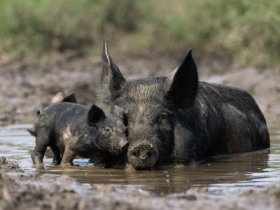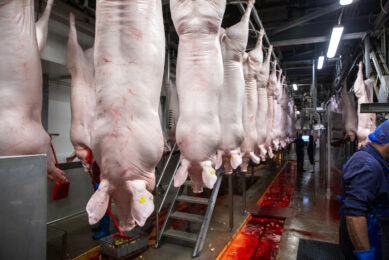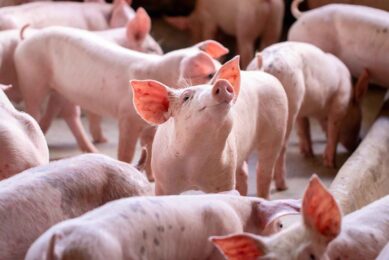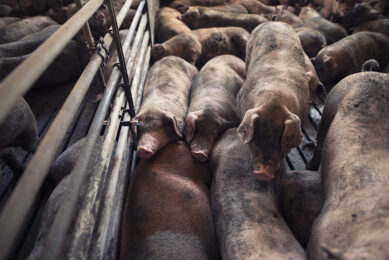Should future pigs roll in the mud again?

Increased hygiene and a lack of exposure to various microorganisms may be affecting the immune systems of many populations – particularly in highly developed countries like the USA –to the degree that individuals are losing their bodily ability to fight off certain diseases.
By©Emmy Koeleman
That’s the essence of the ‘hygiene hypothesis’, a school of thought that argues that rising incidence of asthma, inflammatory bowel disease, multiple sclerosis and perhaps several other diseases may be, at least in part, the result of lifestyle and environmental changes that have made us too ‘clean’ for our own good.
Not only this hypothesis has been an ongoing discussion in humans, also animal scientists are questioning how this applies in intensive animal production systems.
Pigs as example
During the recently held Schothorst Feed Research symposium: Dynamics in Animal Nutrition, Denise Kelly from the Rowett Research Institute©in the UK discussed this issue and took pigs as an example.
In her speech she questioned whether it is better to keep pigs in a fully clean environment or in a ‘dirty’ environment. Pigs seem to be always associated with being dirty and naturally be in dirty/muddy environments. Surprisingly, pigs aren’t that dirty. They don’t usually roll in mud like some say (of course only possible in outdoor systems). They seem to have a lot in common with dogs; they like to stay clean, and root around.
Dirty
But to come back to the hygiene hypothesis: is it healthier for a pig to be housed in a spot on clean system or is it better to let the barn be a bit dirty? A study that Denise Kelly presented at the symposium was a trial that she did in neonatal piglets. She showed that the rearing environment has a fundamental effect on microbiota, in favour of the piglets raised in the outdoor sow reared (dirty) environment. And a healthy gut and balanced microbiota means a stronger immune system, less diseases and better animal performance.
So indeed, rolling in the mud and some bacteria in the barn seem like a good plan! However, still many animal scientists have different ideas about it, and in terms of disease prevention the industry tends to go for the cleanest option. This explains the many different statuses that pigs are sold under (from cleanest to dirtiest): Germ Free (axenic), Gnotobiotic, Specific Pathogen Free (SPF), secondary SPF and minimal disease (MD). But if studies point towards the fact that pigs raised under ultimate clean conditions are not healthier per se, maybe we have to throw that theory overboard?
Manure smell
I don’t have a ‘clean’ answer to the question to the issue, but as Andrew van Kessel from the University of Saskatchewan©addressed in his talk at the event: a dirty environment may be favoured for producing healthier pigs, although he sees a major advantage in the fact that the manure of the germ free (clean) pigs doesn’t stink that much. I am curious if we are heading to a bright (clean) or dirty future in the pig industry!











